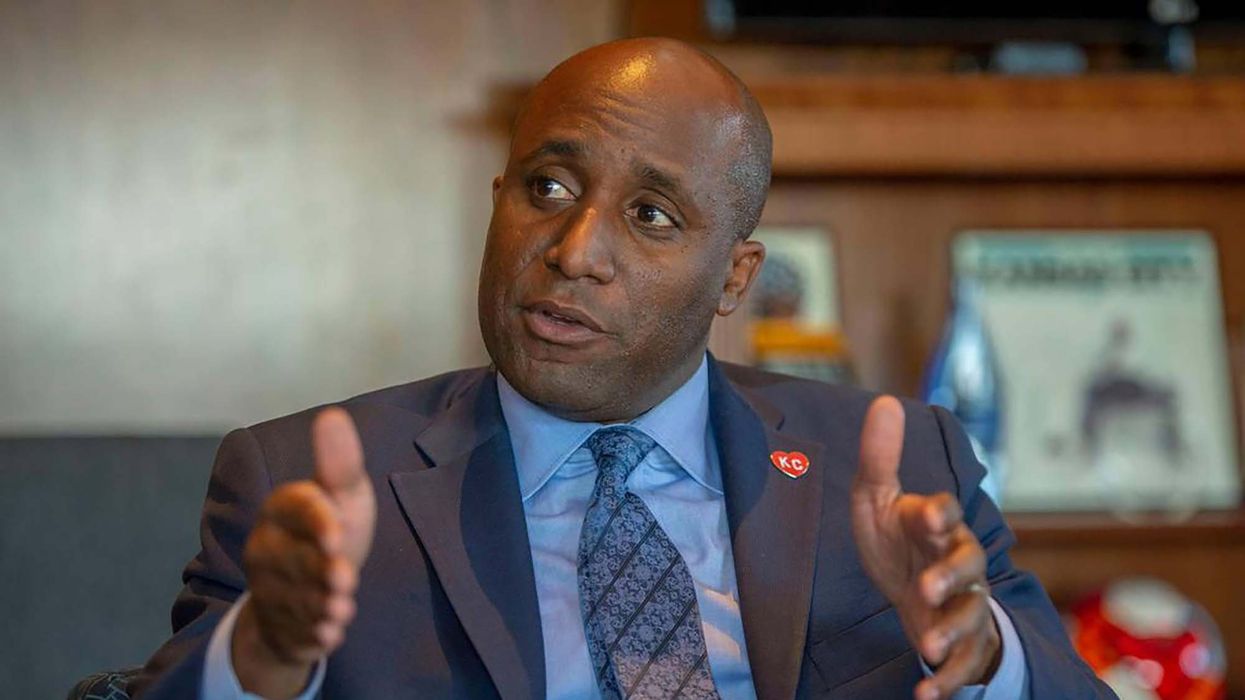
Emily Curiel/Kansas City Star/Tribune News Service via Getty Images

Professional sports franchises are some of the most lucrative businesses in America. NFL teams on average cleared $137 million in earnings last year, before interest, taxes, depreciation and amortization (EBITDA). Most baseball teams, including the Royals, likewise bring in tens of millions of dollars in profit per year.
Unlike other businesses that are far less profitable, sports franchises have long pled poverty in an effort to con city leaders and voters out of their tax money to build them new stadiums to play in. In support of these pleas, the franchises have relied on the dubious premise that increased economic activity around the stadium will generate enough business to offset the hundreds of millions of dollars taken from taxpayers.
Numerous studies have shown that these promises are actually lies, as there is no evidence that sports teams generate additional revenue at allat all above what would otherwise exist, and certainly not nearly as much as is generally taken forcefully from taxpayers. By far the biggest beneficiaries of this money are the billionaire team owners, who generally include the value of the new stadiums in their team valuations, which improves the value of the team at sale and as collateral for loans. Likewise, it is also a lie that teams cannot feasibly finance their own stadiums. Wrigley Field and Dodger Stadium, two of the most venerable and longest-standing stadiums in sport, were built with private financing, among others. The Phoenix Coyotes, who are by all accounts far less profitable than either Kansas City team, announced this week that they will build a new stadium that is financed entirely by private money.
There are signs that the public is wising up to the scam. In sports-hungry Tennessee, the Titans approached voters and issued veiled threats to leave if the state and city did not chip in around a billion dollars to help finance a new stadium, in spite of the fact that their current stadium is only a quarter-century old. Polling showed that Tennessee voters were overwhelmingly opposed to the plan, although both the state legislature and city council blew through voter discontent and blithely approved the plan anyway. Voter anger over the vote led largely to the election of Freddie O'Connell, the most vocal stadium opponent, as Nashville mayor.
Unlike Tennessee voters, voters in Kansas City were given a direct say in whether they should be required to pay for the business facilities of billionaires recently, and spoke with a voice that could not have been clearer. Even though Kansas City mayor Quinton Lucas and most of city leadership endorsed an extension of a 3/8 cent sales tax measure to help pay for a new stadium for the Royals and major stadium renovations for the wildly popular Chiefs, voters were not impressed, sending the measure to a resounding defeat.
The billionaire owners responded to this development with a familiar refrain, and threatened to take their balls and go home. Or at least somewhere else. Royals owner John Sherman had his wife do the heavy lifting by posting those threats on Facebook, accusing Jackson County, Missouri of a "failure of leadership" and saying that the greater Kansas City area would be lucky if the teams even ended up across the border in Kansas.
Kansas City's Democratic mayor Quinton Lucas indicated in a post on X that, not to worry, city leadership is committed to keeping the teams in Kansas City, apparently at taxpayer expense.
Clinging to the belief that voters did not reject being taxed to pay for a rich business's facilites, but rather were rejecting a lack of appropriate planning, Lucas insisted, "“I hear rumors, including even from the Mayor of Dallas. Don’t believe the noise. We are committed to retention of our teams with vastly lower expenses -- think needed infrastructure build-out -- than even an intra-metro move. Both teams will be in KCMO in 2040 and long after."
Where the teams go next is an open question. Although the Chiefs and Royals worked together on the failed proposal, they could attempt to wrest further tax money from voters separately, or turn to search for a city that is more willing to ignore the economic reality in the hopes of luring a professional sports team.
As far as Lucas is concerned, however, "The people of Kansas City and Jackson County love the Chiefs and the Royals.... I look forward to working with the Chiefs and Royals to build a stronger, more open and collaborative process that will ensure the teams, their events and investments remain in Kansas City for generations to come."